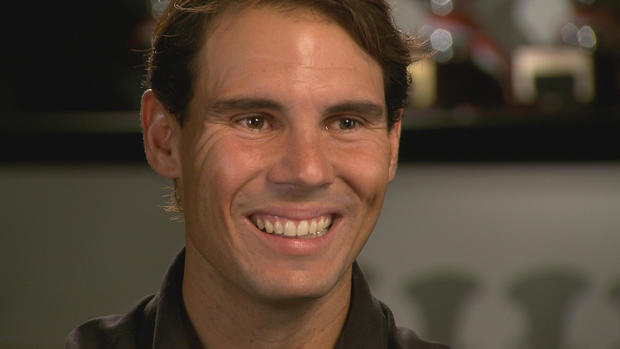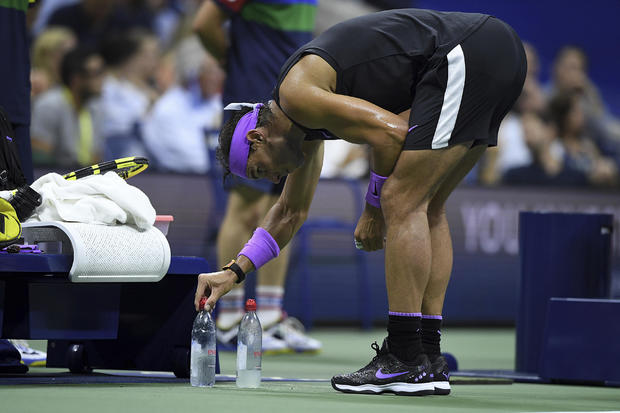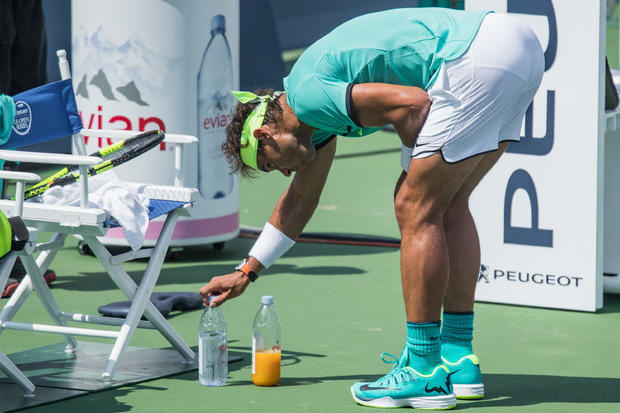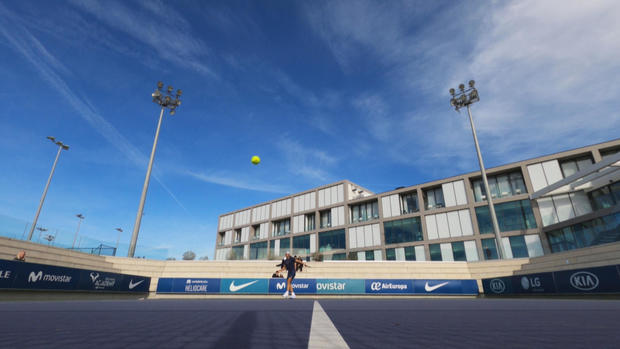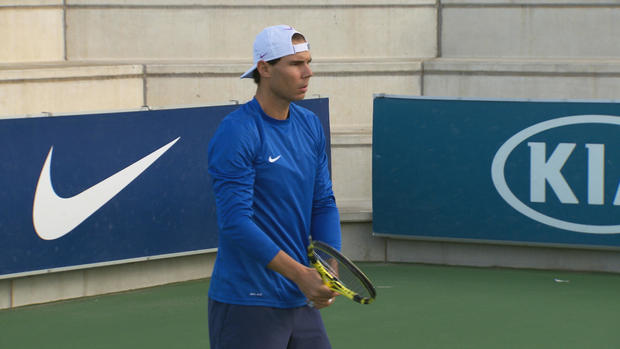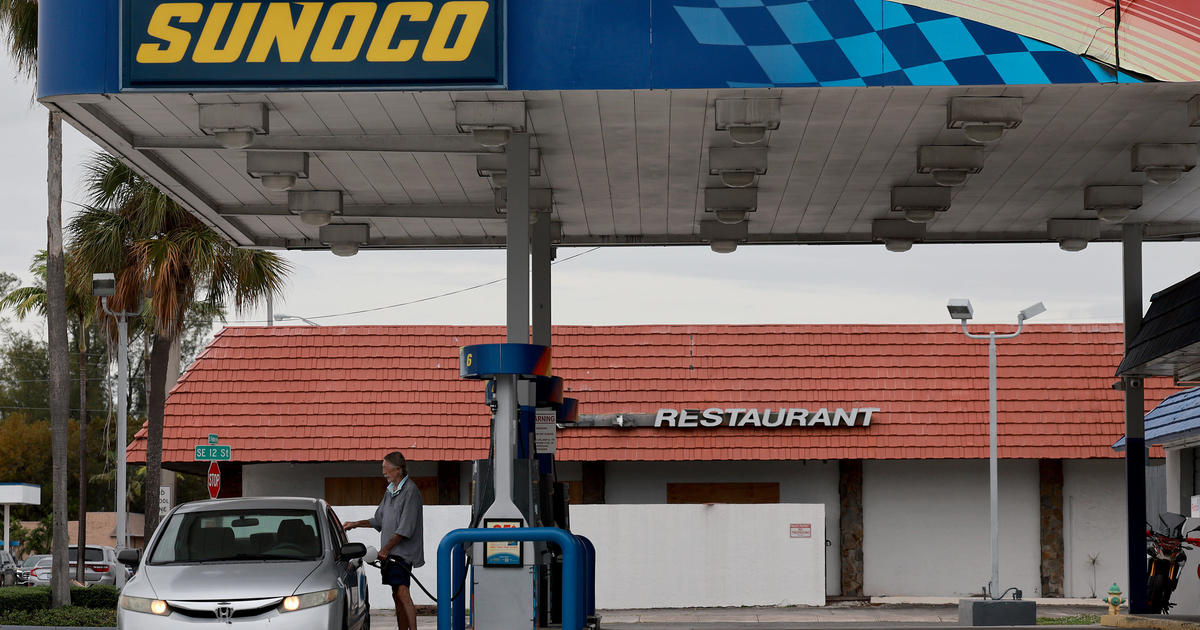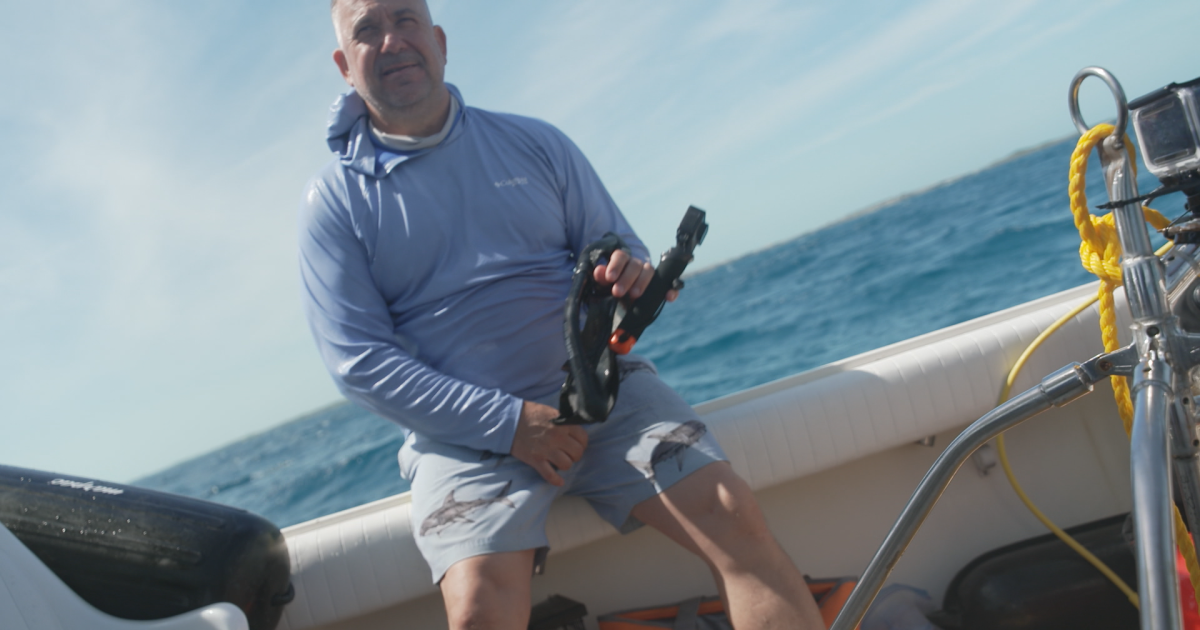Rafael Nadal still really likes playing tennis
The number one tennis player in the world, Rafael Nadal plays with power, focus, and force—even in the off-season.
60 Minutes contributing correspondent Jon Wertheim visited Nadal last month in his hometown on Mallorca, the Spanish island where he was born and lives. Rather than use the time to rest before the start of a new season, Nadal was working intensely, honing his southpaw forehand and double-fisted backhand.
Wertheim watched as Nadal played through his morning practice with his characteristic vigor, sending balls catapulting off his racket with an urgency typically reserved for matches. His relentlessness has served him well on the court. He has won 19 majors—only one shy of Roger Federer's record 20—with his own record of 12 titles earned on Paris' red clay courts.
It has also taken a toll on his body.
"I'm very happy that after all of the physical issues that I had to suffer through my career, which are a lot, I'm delighted to be where I am, being 33," he told 60 Minutes correspondent Jon Wertheim. "This is something I value and that gives me great personal satisfaction."
Nadal has joined tennis royalty, in spite of frequent physical injuries. He has experienced the gamut, occasionally taking extended time off to rehab. Each time, he pushes through and returns to the top of his game.
In a way, struggling through adversity is also what Nadal likes most about tennis itself.
He told Wertheim that he enjoys the "mental effort" of the game, the search for solutions when he is down in a set, the analysis needed to change a match's dynamics. When he is losing, he wants to understand what is going wrong, to analyze how his opponent is playing better that day.
If he comes from behind to win, he said he finds the victory even more satisfying than, say, trouncing a competitor in straight sets.
"Because you make the extra effort," he said. "It means that you have the chance to compete again the next day. And the next day, you're going to be playing better. Sometimes when I'm in the first round or second round, and I'm not playing well, I say, okay, just accept it. Don't get frustrated. Just accept and focus."
Focus is a key element of Nadal's game. To block out distractions—from the crowd, from his opponent, from his own head—he has built-in rituals that he performs each match. He told Wertheim that about an hour before a match begins, he talks with his coach. Then, he thinks to himself as he prepares the grips on his rackets and his physiotherapy bandages. Just prior to walking out on the court, he steps into an ice-cold shower.
Then, once on the court, there are the water bottles.
Even a casual tennis fan has likely noticed Nadal's very specific habit regarding his water bottles. He always places two bottles in front of his chair, setting one behind the other so they face the court diagonally. He turns their labels outward. Prior to the match and during changeovers, he takes alternating sips from each before putting them back in their places with precision.
It may seem like superstition, but Nadal says it is all part of the way he disregards distraction.
"If I don't do that with the bottles, then I sit down, I could be thinking of something else," he told Wertheim. "If I do always the same things, it means that I am focused and I'm alert to think purely about tennis."
Wertheim has seen plenty of Nadal's rituals in the 15 years he has covered the tennis tour, both for Sports Illustrated and the Tennis Channel. He has also written Strokes of Genius: Federer, Nadal, and the Greatest Match Ever Played, which chronicled Nadal's marquee victory over Federer at Wimbledon in 2008.
When Wertheim first profiled Nadal for Sports Illustrated in May 2005, the tennis phenom hadn't yet won a major. But the 60 Minutes contributor saw the potential in Nadal's passionate playing, writing, "[T]here's every indication that Nadal … has begun a long residence at the top of the sport."
And he has. Nadal entered the Association of Tennis Professionals' top 10 that same year and hasn't left.
Now with the Australian Open set to begin next week, he is on a quest for his 20th major. But his main coach, Carlos Moyá, said they are not focused on Nadal's potential place in history.
"The subject is always there. But we try to avoid it," Moyá told Wertheim. "He has a lot of pressure on him just being Rafa Nadal. And we try to forget about that challenge of beating Roger [Federer] or whoever is the one who's having more [Grand] Slams."
For now, it is Federer, who is possibly Nadal's greatest rival. The two have played each other 40 times, with Nadal leading in head-to-head matchups 24 to 16. Theirs is a classic rivalry with a timeless clash of playing styles: lefty versus righty; passion and intensity versus precision and quiet restraint.
In most sports, a competition such as theirs is intense; the rivalry is tribal.
"Nobody says, 'I like the Yankees, and I'm a Red Sox fan, too,'" Wertheim said. "You've got to pick sides."
But not, it seems, with Nadal and Federer. That's in part because theirs is a rivalry devoid of animosity. In fact, they actually like each other.
"[We] also know that this is a game," Nadal told Wertheim. "And there are many other things in life that are more important than a game, than a match. And of course there have been some moments with more tension. But like everything else in life, both he and myself, we had very clearly in our minds that the human relations are more important than the tennis rivalry."
But just as Nadal inches closer to Federer, so too does Novak Djokovic, who has won 16 majors. The dominance of this "big three" is hard to overstate: Nadal, Federer, and Djokovic have won 55 of the last 66 majors since Wimbledon in 2003. Another player has not won a major since 2016.
But in this three-person race to the top, history may mean the least to Nadal, according to Wertheim.
"If he retires with the most majors, that's great, and if not, I don't think it's going to devastate him," he said.
At the very least, Nadal told Wertheim he will be ready when retirement arrives.
"I'm not worried about retiring at the end of my career," Nadal said. "I just want to be happy and enjoy playing as much as possible. And when I retire, I think, fortunately, there are many things in my life that will make me happy."
To watch Jon Wertheim's 60 Minutes interview with Raphael Nadal, click here.
The video above was produced by Brit McCandless Farmer and Sarah Shafer Prediger. It was edited by Sarah Shafer Prediger.
